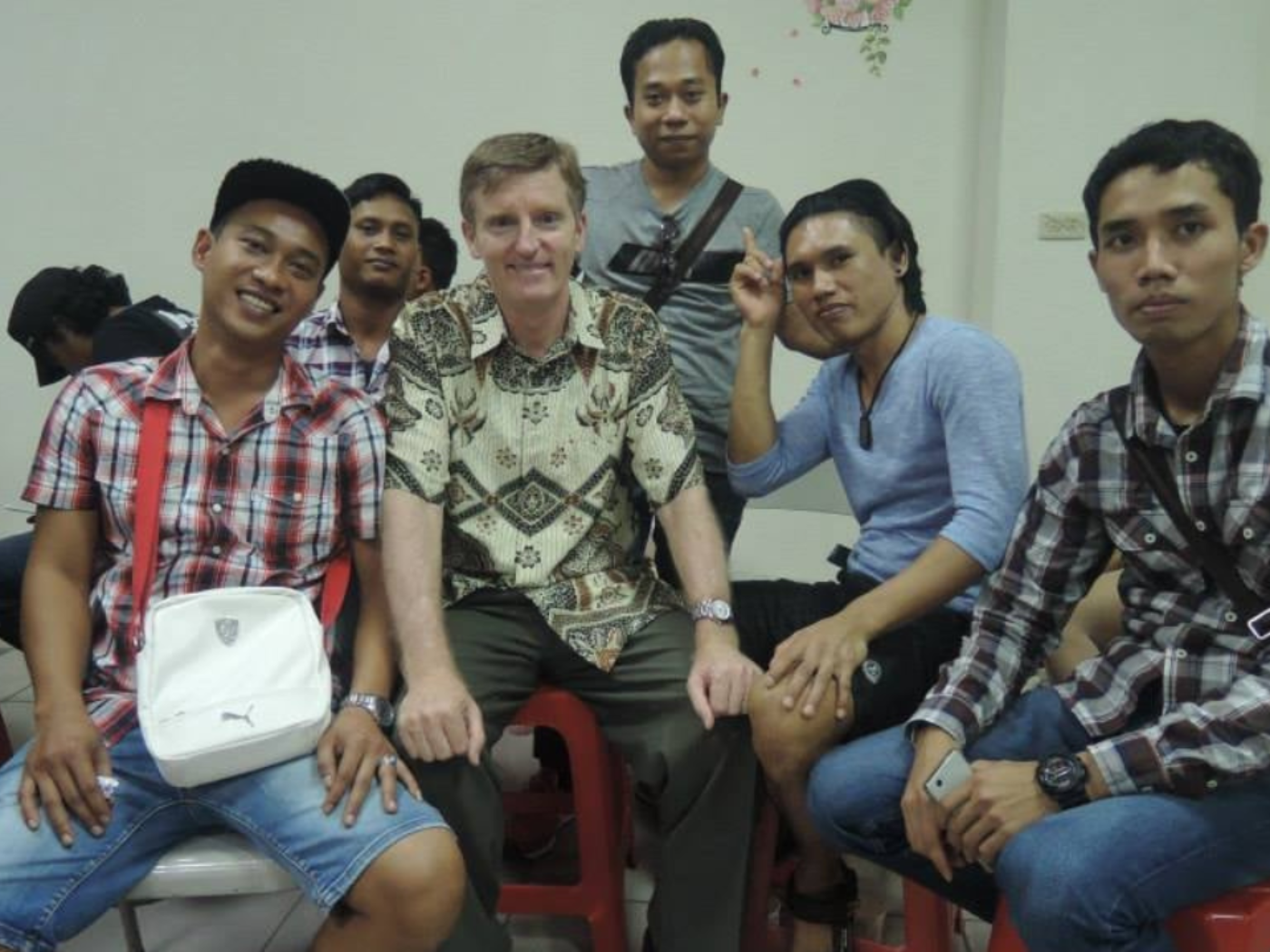During my twenty-six years as a Columban missionary in Taiwan I heard the horrendous stories of hundreds of migrant workers who were victims of human trafficking. Most of the female victims worked as caregivers looking after their employer’s elderly mother or father. They were forced to work at least sixteen hours a day caring for the elderly person as well as doing illegal work in their employer’s restaurant or factory with no day off. Many of them received very little salary or no salary at all. They were threatened by their employers that if they ran away from their workplace, they would be arrested by the police, detained and deported.
Some were brave enough to escape to the local Catholic church where the Columban Hope Workers Centre was situated. (In 2009 the Centre came under the auspices of the local Hsinchu diocese.) At the time I was working as the Centre’s director. The Centre’s dedicated staff educated the caregivers on how to collect evidence of their exploitative work conditions. Sadly, with no evidence of abuse it was their story against their employer’s story.
It was painful to have to tell the worker to return to work for a couple of days to collect the evidence of abuse then the Centre would arrange for a government official to come unannounced to their employer’s restaurant or factory where they were working illegally. Once rescued the migrant worker would be referred by the government to live at the Centre’s shelter where she would be safe from her abusive employer and receive assistance from the staff to claim her unpaid salary and be transferred to a new employer.
Many of the caregivers who were victims of labour exploitation didn’t know where to go for help. Instead, they would run away from their exploitative work conditions and were lured by illegal employment agents to work as waitresses in karaoke bars which were frequented by men. Little did they know they were entrapped inside an actual brothel. After working for a few weeks, they were then forced to provide sexual favours for the male clients. The immigration police after due surveillance would raid the bar and rescue the migrant women. The police would then refer the trafficked women to the Hope Workers Centre for shelter.
The migrant women were also victimized by unjust government policies. Even though many of them had no recourse but to run away from their abusive employers, they were seen by the government as a “runaway” or an “illegal worker”. While the term “illegal migrant worker” is commonly used by many governments, the 1990 UN Convention on Migrant Workers does not recognize a status of “illegal” migrant worker. The convention acknowledges that irregular migration exists, but it does not equate irregular status with being an “illegal” person.
Having fallen into the category of an irregular migrant worker, the women could remain in Taiwan and work legally provided they were willing to be a witness in court for the government against their trafficker. If not, they had to leave the country immediately. Most of the women chose to remain so they could continue to work to support their families back home.

The Centre’s staff assisted the victims to receive free legal aid from the government’s Legal Aid Foundation and accompany them to their court cases. Usually, a case would take up to two years in court. Of the hundreds of trafficked victims assisted by the Hope Workers Centre and the Hsinchu Diocese Migrants and Immigrants Service Centre where I was also the director for 10 years, only two traffickers were convicted and sentenced to two years in prison.
During my time in Taiwan, our Centres’ staff and I were invited by the Taiwan immigration and local police to give education to their personnel on the three pillars of human trafficking – prevention, protection and prosecution. We worked closely with local enforcement agencies to help them understand the indicators of labour exploitation and sex trafficking. As a result, many new regulations were introduced to better protect the rights of trafficked persons.
Millions of domestic workers and caregivers are vulnerable to labour exploitation because they are not protected by local labour laws. In 2010 and 2011, I was a member of the Migrant Forum in Asia delegation to the International Labour Conference in Geneva, Switzerland where we lobbied for the adoption of the ILO Convention concerning Decent Work for Domestic Workers. It was the 189th ILO convention and was adopted during the 100th session of the International Labour Organization, (ILO) on 16 June 2011. This was an historical moment where for the first time domestic workers were acknowledged as equal to any other wage earner with an acceptable minimum standard for working conditions. However, only 38 of the 193 UN member states have ratified the convention.
The countries where Columban missionaries are working and have ratified the convention are the Philippines, Ireland, Chile and Peru. The 2024 Columban General Assembly Acts states “our solidarity with migrants, refugees, trafficked persons, internally displaced people, and asylum seekers includes advocating in solidarity with them and people of other faiths and worldviews for their rights and dignity. This is where God is calling us today.”

